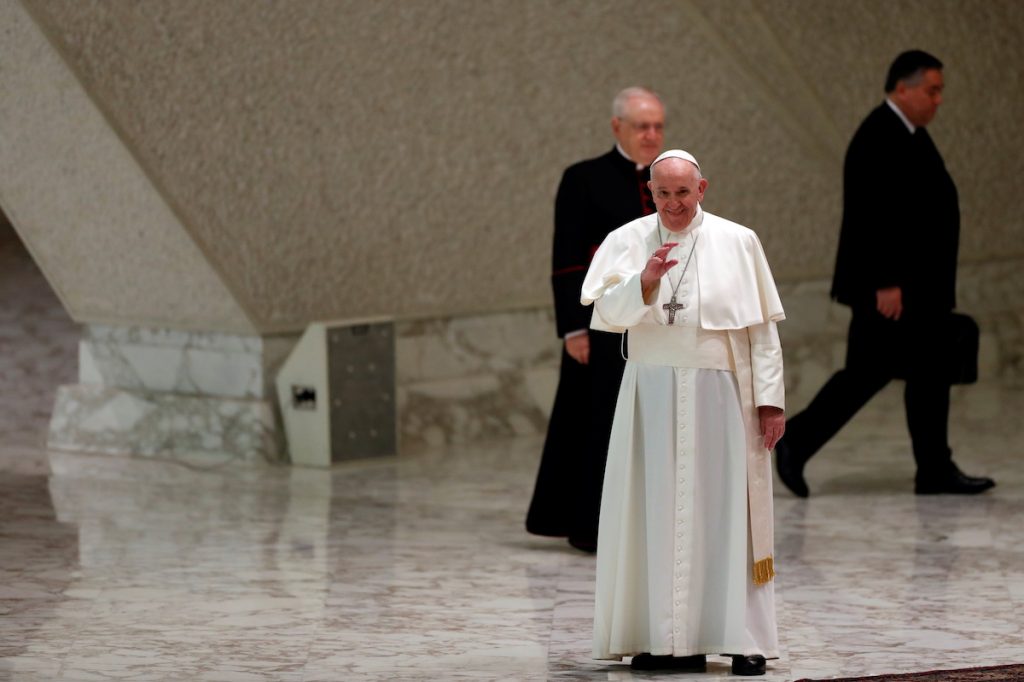Pope Francis said he is taking “small, but concrete steps” in fighting corruption in the Vatican.
“The tactic is banal, simple, to go forward and to not stop,” said the pontiff in an interview with Italian news agency AdnKronos. “You have to take small but concrete steps,” he added.
The pope said more changes are coming in the fight against financial corruption, which he described as a deep, recurrent problem in the Church.
“Unfortunately, corruption is a cyclical story, it repeats itself, then someone comes along to clean and tidy up, but then it starts again waiting for someone else to come and put an end to this degeneration,” he said in the interview, published Oct. 30 and quoted by the Catholic News Agency.
“I know I have to do it, I was called to do it, then the Lord will say if I did well or if I did wrong. Honestly, I’m not very optimistic,” added the pope.
He said “there are no particular strategies” on ending corruption in the Vatican, adding details about changes made over the last five years.
“We went to dig into finances, we have new leaders at the [The Institute for the Works of Religion, commonly known as the Vatican Bank], in short, I had to change many things and many will change very soon,” he said.

A Vatican tribunal is currently investigating resigned Cardinal Angelo Becciu, formerly number two at the Vatican’s Secretariat of State, who was linked to various financial scandals, including the use of millions of euros of Vatican charity funds in speculative and risky investments, including loans for projects owned and operated by the cardinal’s brothers.
In the Oct. 30 interview, Pope Francis responded to a question about recent criticism he has received, including the renewal of the Vatican-China deal and his apparent approval of the legalization of same-sex civil unions in a recently-released documentary.
The pope said he wouldn’t be telling the truth if he said criticism does not bother him. Nobody likes criticism given in bad faith, he said.
“With equal conviction, however, I say that criticism can be constructive, and then I take it all because criticism leads me to examine myself, to make an examination of conscience, to ask myself if I was wrong, where and why I was wrong, if I did well, if I did wrong, if I could do better,” said the pope.





